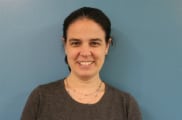For educators seeking to grow and develop a school culture of respect and collaboration a new tool has recently been published. Monica Martinez’s Deeper Learning Planning Guide assists schools trying to implement deeper learning and create a school culture that encourages respect and collaboration. The guide helps schools to reflect on current practices, plan, and implement strategies that will implement deeper learning.
The guide encompasses four phases with each phase containing multiple steps to walk schools through the process. The four phases are: establishing your vision for students; understanding and assessing the conditions for deeper learning; planning for deeper learning; and monitoring your plan for deeper learning. Martinez guides readers along with thought-provoking questions, in-depth worksheets, and calls to action.
Phase one helps schools lay the foundation for deeper learning to grow and thrive by creating a vision that reflects the six deeper learning outcomes: mastery of core content knowledge, critical thinking and problem solving, collaboration, communication, self direction, and academic mindset. A clear and coherent vision is imperative for a school to be able to successfully implement deeper learning. The planning guide includes examples of strong vision statements and encourages schools to reflect on the value and success of their current vision statement. The Denver Center for International Studies’ vision statement reflects deeper learning and has helped to promote the successful learning environment seen during our trip to the school. The vision statement declares, “The Denver Center of International Studies prepares students for college by developing multilingual, intercultural competent citizens who are actively involved in our rapidly changing world.” DCIS’ vision provides direction for the school to act while being appropriately ambitious and describing what the school wants their students to learn.
A school vision should direct and inform the school culture. When you enter a school you should be able to see the vision in action rather than just on a banner. Phases two, three, and four help schools turn their vision into action and action into results. Each phase builds upon the previous ones, allowing schools to dig deeper into what deeper learning really is, create strategies, and implement those strategies. DCIS has been able to do this with their vision statement and work on school culture. With the help of the Deeper Learning Planning Guide many other schools can, too.
Tyler Gibbs is an intern with at the American Youth Policy Forum
Additional Resource: Deeper Learning: How Eight Innovative Public Schools Are Transforming Education in the Twenty-First Century
by Monica R. Martinez and Dennis McGrath
See: http://www.monicarmartinez.com/






